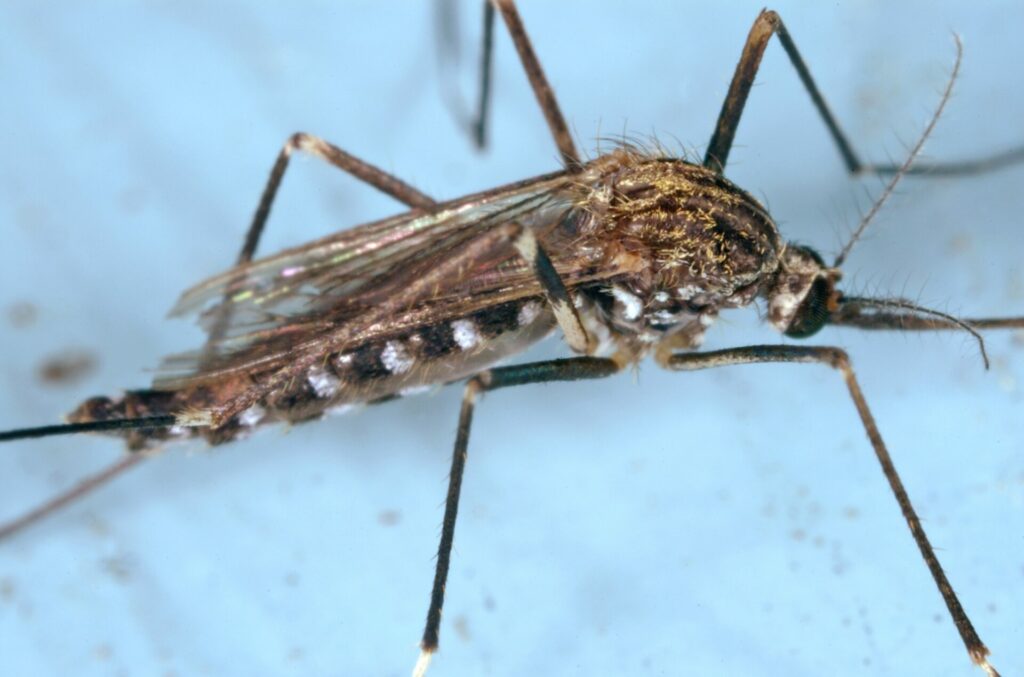An Asian forest mosquito, known by the Latin name Aedes Japonicus, has recently been discovered in Maasmechelen, in the province of Limburg in Flanders, according to Belgian media RTL Info.
This exotic mosquito is less dangerous than the tiger mosquito, which is growing in population in Belgium and risks transmitting infections such as dengue, zika, and other tropical diseases.
The Institute of Tropical Medicine (IMT) at the University of Antwerp, alongside the Sciensano Institute of Public Health are encouraging local residents to report photos of potential tiger mosquitoes found in Belgium.
Through a public mosquito reporting platform, the researchers received a tip from a Maasmechelen resident about a potential tiger mosquito spotting. When researchers came to the location, no tiger mosquitos were found, but the new exotic Asian forest mosquito was found instead.
This is only the second time that these Asian mosquitos have been spotted in Belgium, with the vast majority of cases being recorded across the Meuse river in the Netherlands.
Related News
- Mosquito outbreak across Europe due to warmer temperatures
- 'Waste of money': One in three mosquito repellents don't work
- British trainee pilot dead after mosquito bite during Belgium visit
The monitoring of the tropical mosquitos, the IMT says, is important to protect public health. When noticed early on, population numbers can be controlled.
“If exotic mosquitos, such as the tiger mosquito, take hold in our country, local transmission could occur if a person infected with the dengue virus, zika virus, or chikungunya virus returns from vacation and is bitten by this mosquito in Belgium,” the two health organisations explain.
Belgians are asked to keep an eye out for the exotic mosquitos and report any sightings of a tiger mosquito on the Surveillance Moustiques website. To date, the platform has received more than 200 submissions by Belgians.

